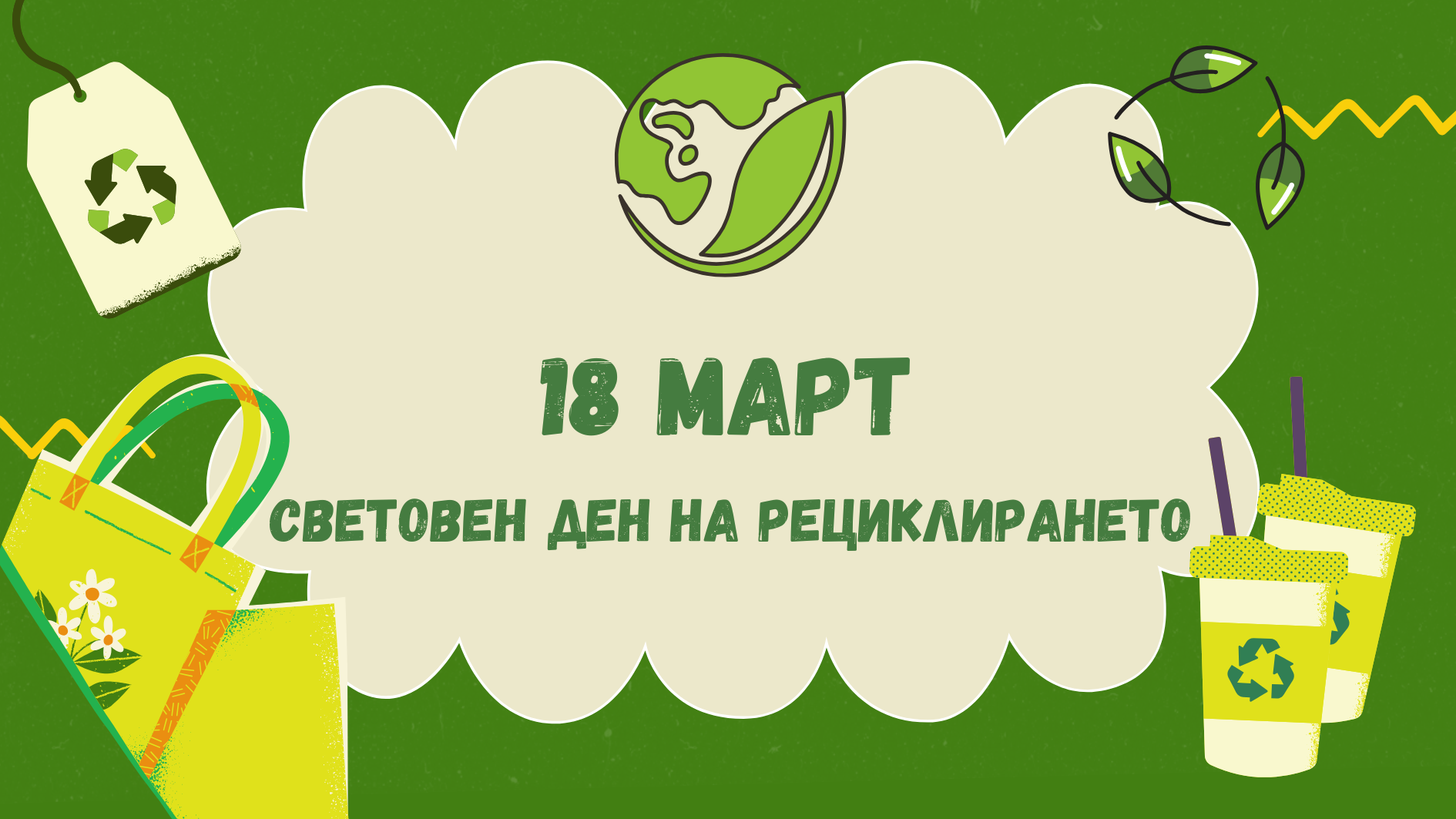Waste management is one of the priority sectors in the Sustainable Development Strategy of the Technical University of Sofia. Key practices are the separate collection of waste, its subsequent recycling and the composting of food waste from the student canteen.
The first Bulgarian University awarded the ECO star
Due to the separate collection of plastic bottles and cans, TU-Sofia is the first university in Bulgaria to be awarded an ECO star by ECOPACK Bulgaria. The initiative was created in the context of the European strategy for the development of a circular economy “from bottle to bottle”. It is still ongoing, with the goal being that by 2030, 9 out of every 10 bottles will be collected separately. In partnership with ECOPACK Bulgaria, inorganic waste is sorted by type and color and transported for recycling.
3D products from recycled plastic bottles
The recycling trends around the world also provoke innovative thinking. In response, students from the Robotics club of the Technical University implemented the “ReCycle Machine” project. The machine (stand) they created for recycling plastic bottles offers an eco-friendly solution for reusing the material from which they are made. As a result of their processing, a roll of filament for 3D printers is obtained. A resource that can be used to create a variety of 3D products. The innovation in this project is reflected both in the automatic positioning of the bottle and in a series of checks to control the produced material.
The benefits of recycling
Recycling is an effective process in sustainable waste management. It is based on the idea that a large part of waste materials can be used more than once by becoming resources for creating new products. The search for effective and innovative solutions for processing organic and inorganic waste and their reuse stimulates the development of technologies. On the other hand, as a result of recycling, the amount of waste is reduced, which supports efforts to protect the environment and has a positive impact on the climate. It reduces the need for new raw materials and their extraction. This leads to energy savings and the preservation of ecosystems. In addition to economic indicators, trends in the processing of residual materials also have an impact on consumer culture, as they favor the formation of habits for a more rational use of resources.

